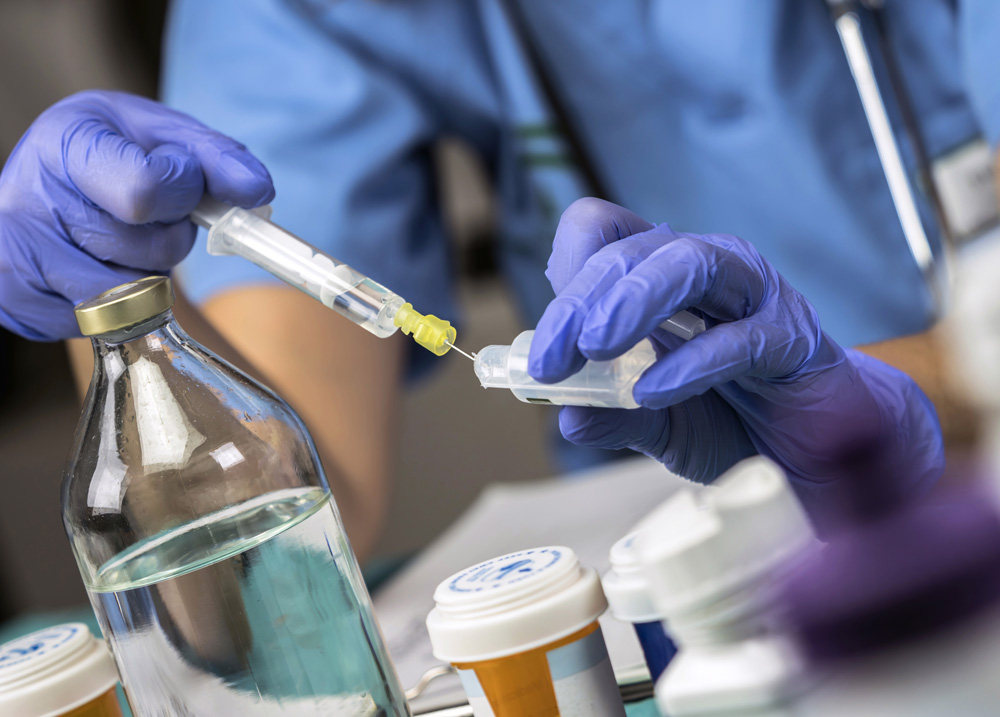Total Parenteral Nutrition
At Fairview Rehab and Nursing Home in Queens, NY, our highly skilled professionals are well-versed when it comes to providing total parenteral nutrition (TPN) to our adult and senior patients. TPN provides all the essential nutrients directly into the veins. It enables the body to maintain energy levels, remain hydrated and become stronger, helping the body to heal.
Sometimes, patients are unable to eat or should not digest a normal diet. One method to remedy this is known as total parenteral nutrition (TPN). Maybe the intestines are blocked, or the bowels require rest and no food passing through them. In other cases, the body may be damaged (through burns or fractures) or needs to be prepared for surgery or treatments. Whatever the case, it is necessary to ensure that patients still receive the all the nutrients they require. Intravenously feeding a patient is a way of giving them all they need.
What is total parenteral nutrition?
TPN is the administering of a nutritious fluid into the veins, bypassing the digestive system. The solution used is made up of all the nutrients required–protein, glucose, carbohydrates, vitamins, fat and minerals.

Every patient’s needs are different, and the solution is customized for the individual. A full medical history is taken into consideration along with age. Any necessary tests will be carried out. All this ensures the TPN fluid prescribed will provide the most balanced formula possible for the patient.
Care professionals try to minimize the period of time that TPN is used. However, in some cases, patients may be fed this way for many years.
How total parenteral nutrition is administered?
All the nutrients to be administered are contained in a bag which is attached to a catheter. The catheter is then inserted into the superior vena cava, a large vein which leads to the heart. This is done under sterile conditions. A chest x-ray may be taken to ensure the placement of the catheter is correct.
Administration is made using an infusion pump. It takes between 10 and 12 hours and needs to be repeated five to seven times per week. They can be carried out in either a hospital or, for long-term treatment, at home.
Whether in hospital or in the home, the patient’s condition will be regularly monitored. Your nurse, doctor and dietician will measure weight, blood cell count, levels of protein and liver function. Any changes required to the nutrient balance can then be made. The catheter will remain in place which reduces the risk of infection and other complications.
What can total parenteral nutrition help with?
Whenever a patient is unable to receive oral nutrition, TPN can help. Commonly, this method of feeding is used because the gastrointestinal tract does not function correctly. In adults, this can be as a result of Crohn’s disease, pancreatitis, bowel disease, or short bowel syndrome. Other patients who may benefit from TPN include burn victims, cancer patients or those with AIDS or sepsis.
If a patient is malnourished and due to have major surgery, chemotherapy, or radiotherapy, TPN can help prepare the body.
